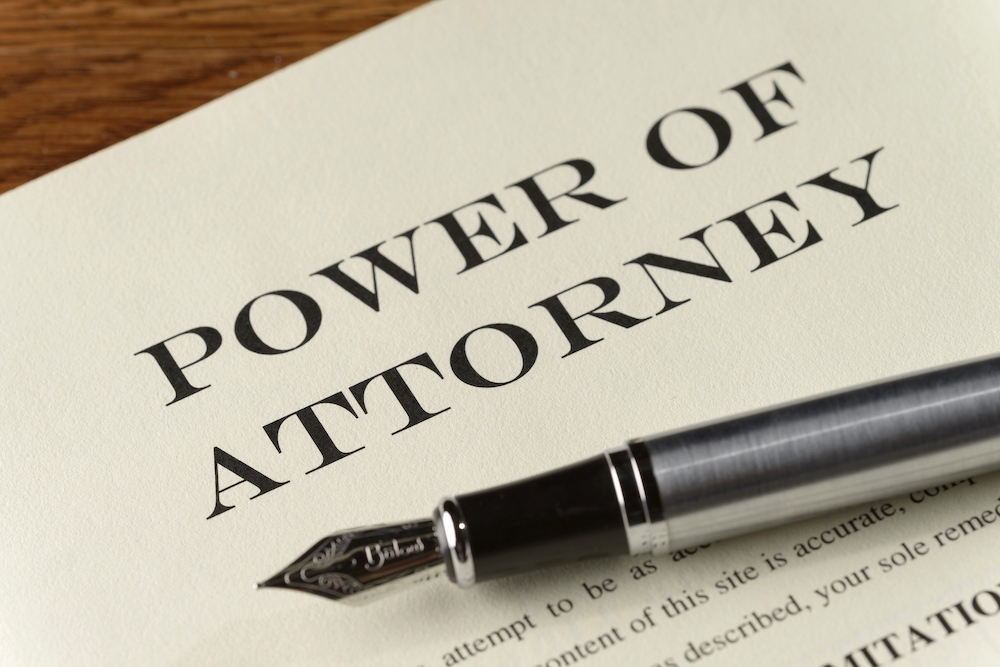Understanding Different Kinds of Powers of Attorney in New Jersey
A Power of Attorney (POA) is a crucial legal document that allows one person, known as the "principal," to grant authority to another individual, referred to as the "agent," to act on their behalf in specified situations. Given the diverse needs and circumstances people may face, New Jersey law accommodates various types of powers of attorney, each tailored to serve different objectives. Below, we explore the different types of POA you may encounter in the Garden State.
Posted on September 4, 2023

General Power of Attorney
A General Power of Attorney grants broad legal authority to the agent to act on behalf of the principal. These can cover a wide range of tasks such as paying bills, managing real estate, and making investment decisions. This POA becomes invalid when the principal is incapacitated, unless it is drafted as a "durable" POA.
Durable Power of Attorney
The "durable" feature can be attached to any form of POA, making it effective even after the principal becomes incapacitated mentally or physically. This durability ensures that the agent can continue to manage the principal's affairs when they are unable to do so themselves. For a POA to be considered durable in New Jersey, the document must contain language stating that it will remain in effect even if the principal becomes incapacitated.
Special or Limited Power of Attorney
As the name suggests, this type of POA is limited to specific tasks or circumstances defined by the principal. These can be financial or non-financial tasks and are common in real estate transactions or handling specific bank accounts. It’s essential to be clear and precise when outlining the agent's responsibilities in this type of POA.
Medical Power of Attorney
Also known as a Healthcare Power of Attorney, this grants the agent the power to make medical decisions on behalf of the principal should they become incapacitated and unable to make those decisions. This kind of POA needs to comply with both federal and state healthcare privacy laws. New Jersey provides statutory forms for this, although it’s not mandatory to use them.
Springing Power of Attorney
A Springing POA becomes effective at a future time or upon the occurrence of a specific event, typically when the principal becomes incapacitated. While it offers the advantage of not granting immediate authority to the agent, determining the exact moment it "springs" into effect can sometimes lead to delays and legal complications.
Financial Power of Attorney
This type of POA is aimed exclusively at managing the financial affairs of the principal. It can be general or limited, covering tasks like managing investments, filing tax returns, and selling property. Due to the sensitivity of financial matters, it's vital that the principal selects an agent they can trust implicitly.
Parental Power of Attorney
Also known as a Delegation of Parental Authority, this form allows a parent to assign another adult the authority to make decisions related to the care of their child for a specified period. This type of POA is generally temporary and often used when a parent is going to be unavailable due to travel or medical treatment.
Power of Attorney for Minor Child
Similar to the Parental Power of Attorney but more narrowly focused, this POA allows parents to delegate decision-making related to healthcare or educational needs for their minor children. This form is typically used in emergency situations when the parents may be unavailable.
Requirements and Considerations
It's crucial to understand that New Jersey laws require the principal to be mentally competent when establishing any form of Power of Attorney. The state also mandates that certain POAs, like those dealing with real estate, must be notarized and sometimes even recorded with local authorities.
Before creating a Power of Attorney, consult with a legal professional to ensure it aligns with your needs and complies with New Jersey laws. The relationship between the principal and the agent should be based on absolute trust, as the agent is often granted significant authority. Keep in mind that you can revoke or change a Power of Attorney at any time, provided you are mentally competent.
Conclusion
Understanding the different types of powers of attorney can help you make more informed decisions tailored to your specific needs. Whether you’re planning your estate, preparing for medical contingencies, or safeguarding your financial future, a well-crafted POA can offer the peace of mind of knowing that your affairs will be handled competently and according to your wishes.
More from our blog…
Seven Ways to Distribute Your Personal Property Fairly
Unlike money, personal belongings usually can't be divided equally after their owner passes away. For this reason, distributing possessions like furniture, jewelry, dishes, silverware, artwork, [...]
Capacity Requirements for Executing Estate Planning Documents
Proper execution of a legal instrument requires that the person signing have sufficient mental "capacity" to understand the implications of the document. While most people [...]
What You Should Know About Long-Term Care
Research shows that roughly one in seven adults aged 65 or older will need long-term care at some point in their later years. Meanwhile, tens of millions [...]
Understanding Medicaid: What Does Medicaid Cover?
In the complex and frequently changing landscape of health care in the United States, Medicaid stands out as a vital program. Since 1965, it has [...]






